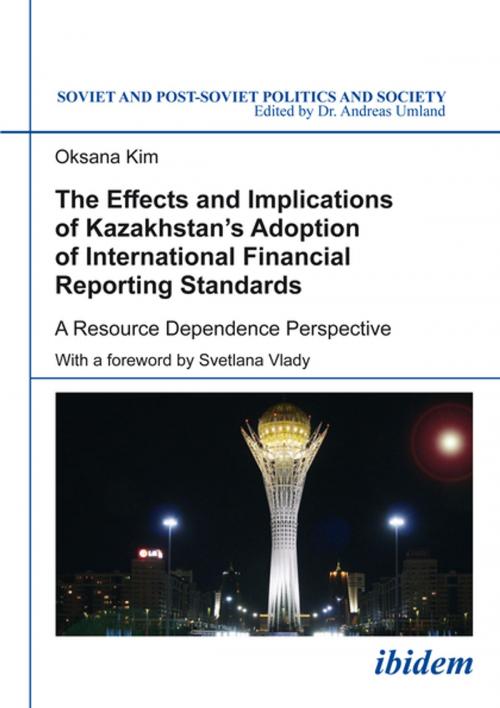The Effects and Implications of Kazakhstan's Adoption of International Financial Reporting Standards
A Resource Dependence Perspective
Business & Finance, Accounting, Financial, Nonfiction, Social & Cultural Studies, Political Science, Politics, Economic Policy, International| Author: | Oksana Kim | ISBN: | 9783838269870 |
| Publisher: | Ibidem Press | Publication: | February 21, 2017 |
| Imprint: | Ibidem Press | Language: | English |
| Author: | Oksana Kim |
| ISBN: | 9783838269870 |
| Publisher: | Ibidem Press |
| Publication: | February 21, 2017 |
| Imprint: | Ibidem Press |
| Language: | English |
?Despite having an underdeveloped supporting infrastructure and limited resources, Kazakhstan was the first CIS country to require international financial reporting standards in 2004 for banks, and in 2005 for all public companies. What were the economic consequences of this important reform? In the 1990s, Kazakhstan's capital market reforms mirrored those of Russia due to the two countries' cooperating mode driven by a high level of resource interdependence and environmental uncertainty, following the collapse of the Soviet Union. Yet, by 2003, dependence on external donors (the IMF, World Bank) took precedence over interdependence with Russia. As a result, Kazakhstan unilaterally proceeded with adoption of IFRS, while Russia backed up from this initiative. This study reports that Kazakhstan's inflow of foreign direct investments was the greatest among the CIS nations following the adoption of IFRS. In addition, in 2005–11, Kazakhstani public firms' reporting quality was higher than that of the Russian public firms operating in a similar environment but exempt from the IFRS reporting requirement. Kazakhstan was the first CIS nation to repay its external debt ahead of schedule and to receive an investment grade from Moody's rating agency. The book concludes that Western-style capital market reforms—in this emerging market with a not-so-distant communist past—had significantly positive outcomes.?
?Despite having an underdeveloped supporting infrastructure and limited resources, Kazakhstan was the first CIS country to require international financial reporting standards in 2004 for banks, and in 2005 for all public companies. What were the economic consequences of this important reform? In the 1990s, Kazakhstan's capital market reforms mirrored those of Russia due to the two countries' cooperating mode driven by a high level of resource interdependence and environmental uncertainty, following the collapse of the Soviet Union. Yet, by 2003, dependence on external donors (the IMF, World Bank) took precedence over interdependence with Russia. As a result, Kazakhstan unilaterally proceeded with adoption of IFRS, while Russia backed up from this initiative. This study reports that Kazakhstan's inflow of foreign direct investments was the greatest among the CIS nations following the adoption of IFRS. In addition, in 2005–11, Kazakhstani public firms' reporting quality was higher than that of the Russian public firms operating in a similar environment but exempt from the IFRS reporting requirement. Kazakhstan was the first CIS nation to repay its external debt ahead of schedule and to receive an investment grade from Moody's rating agency. The book concludes that Western-style capital market reforms—in this emerging market with a not-so-distant communist past—had significantly positive outcomes.?















